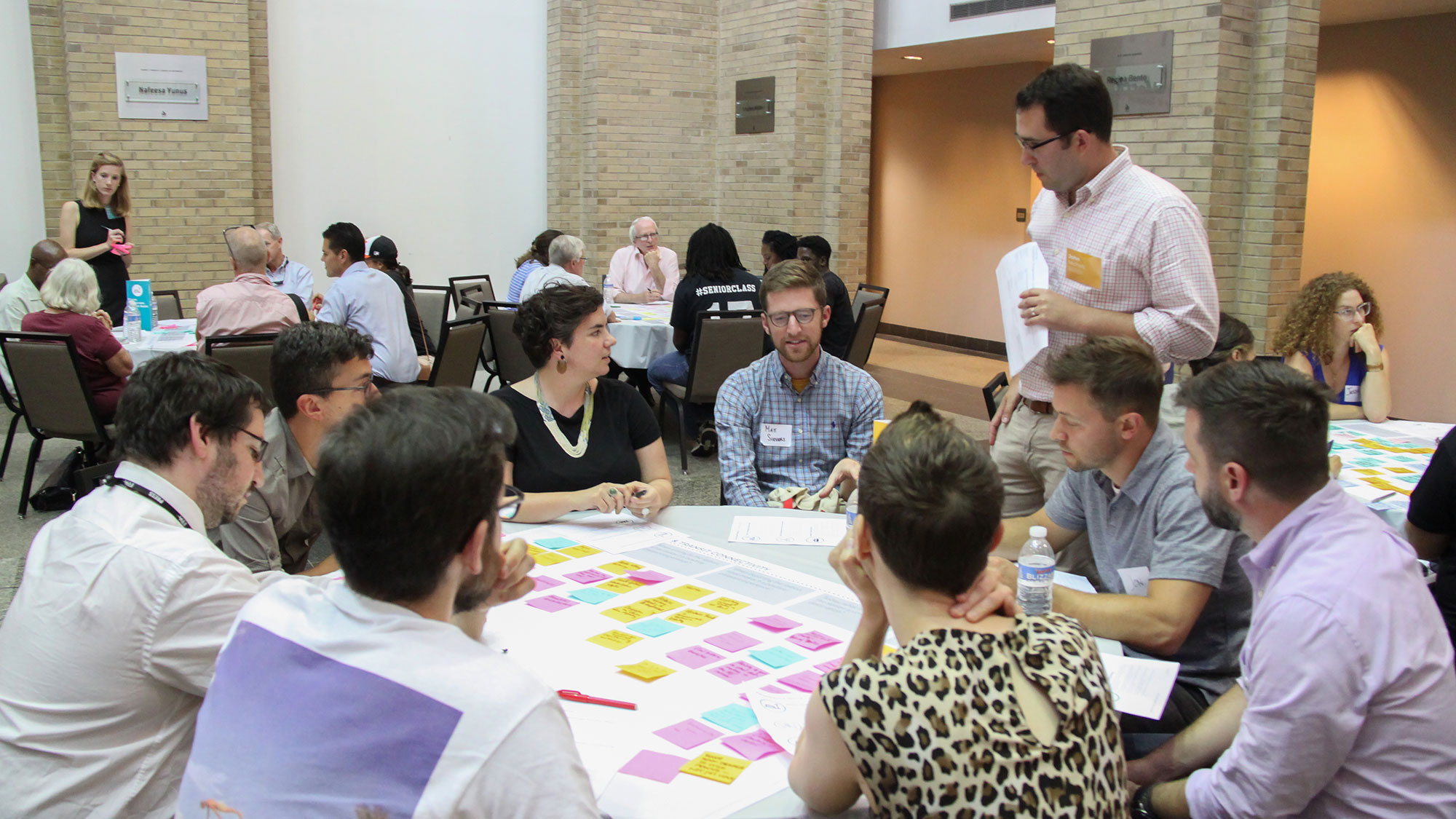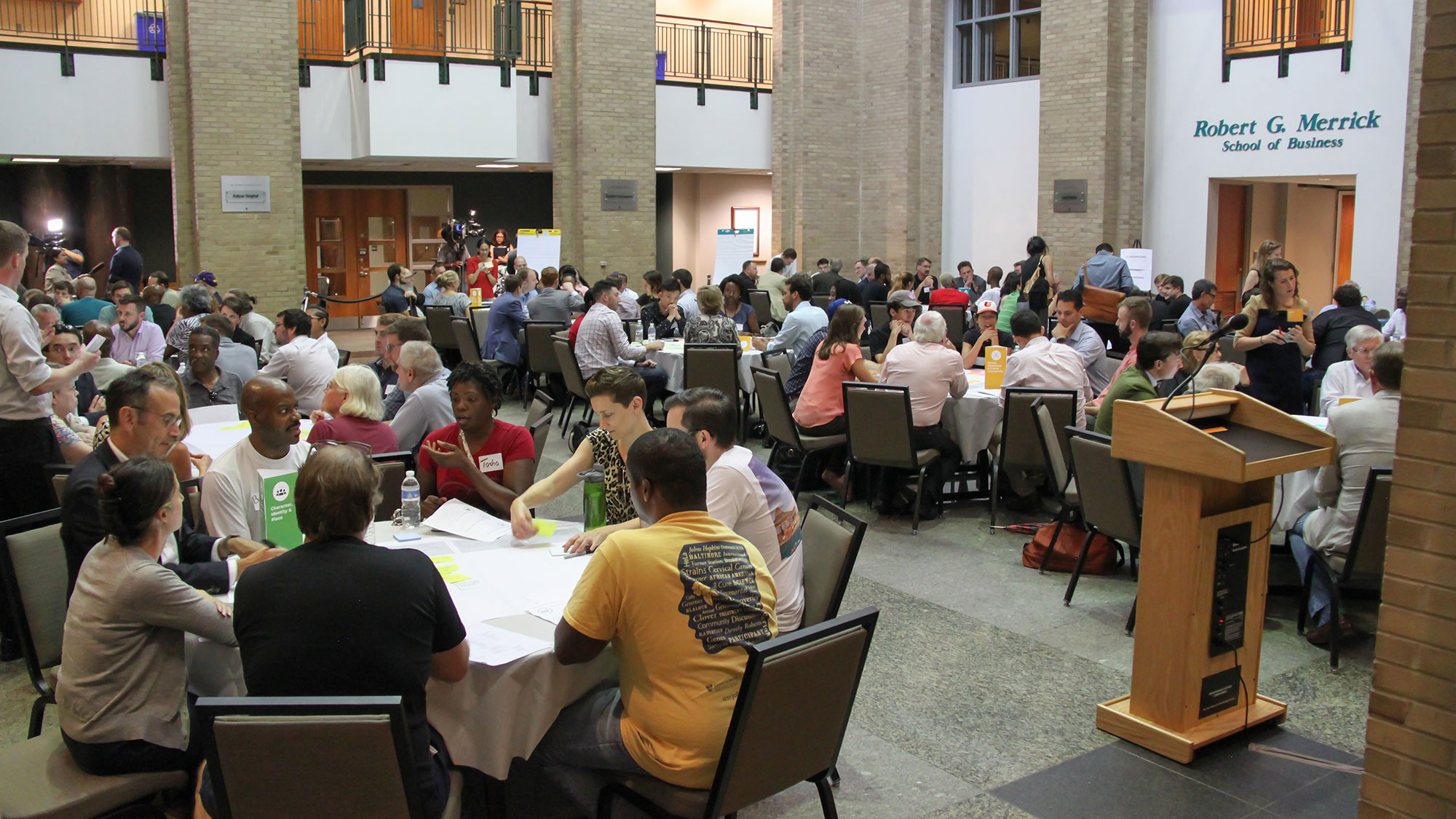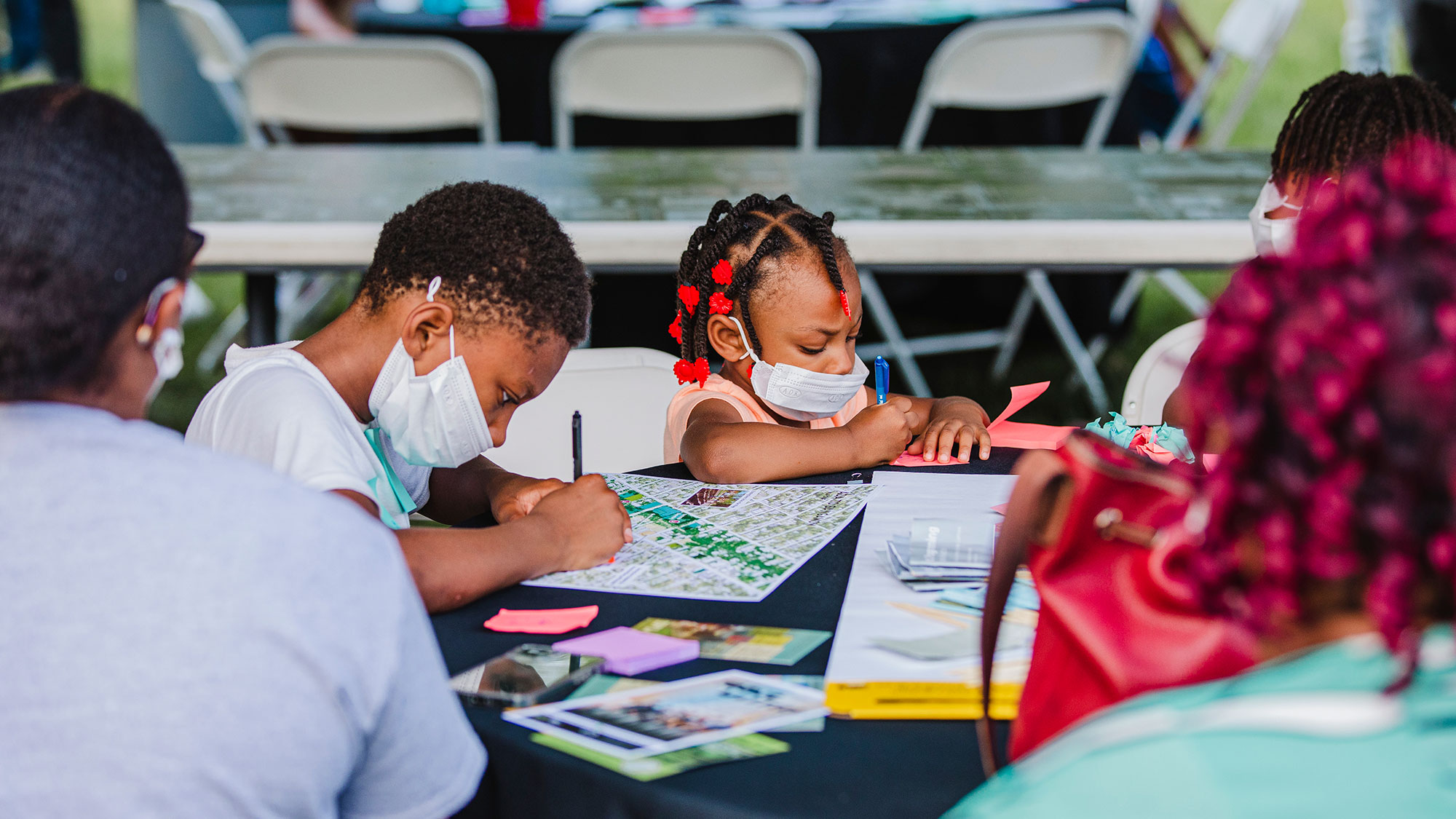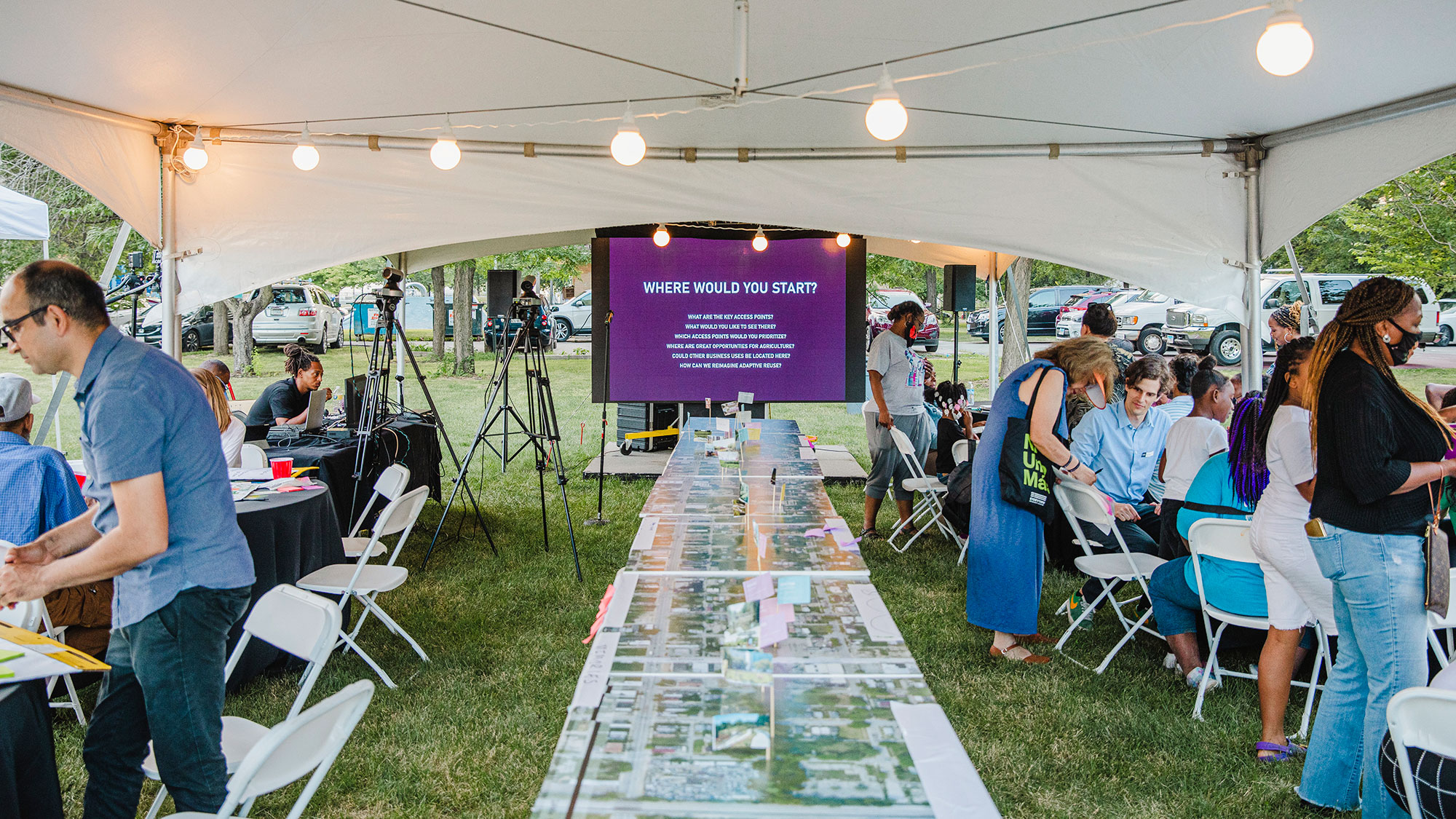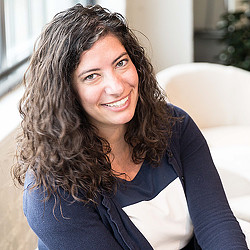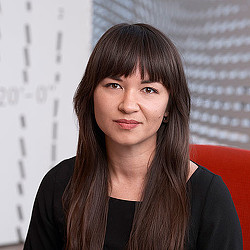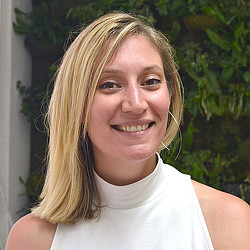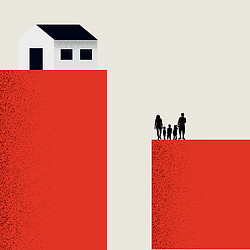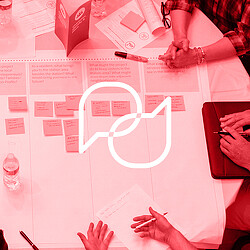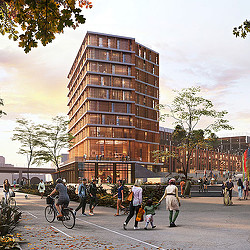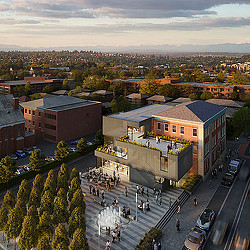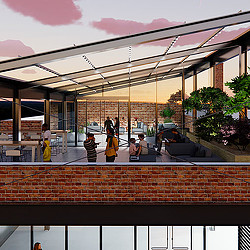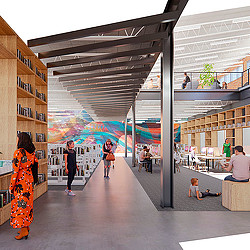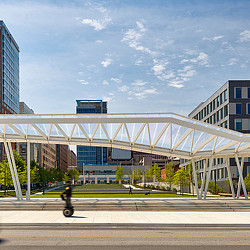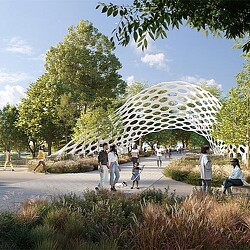Equitable Public Engagement for a Changing World
Equitable outcomes begin with an equitable process, and public engagement is key.
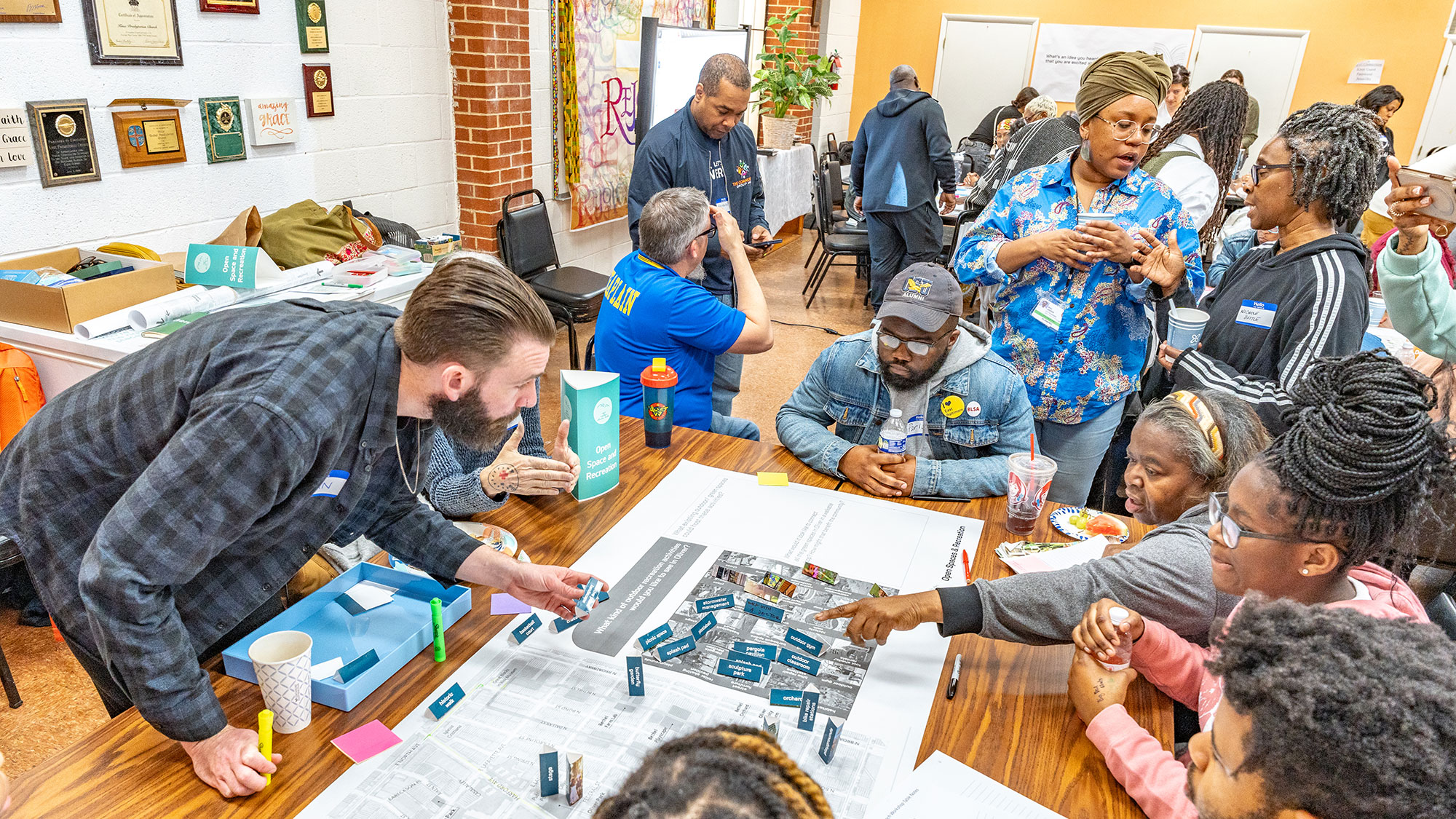
From large-scale developments to local public infrastructure projects, too often, public engagement is an afterthought. We believe that intentional and meaningful public engagement leads to more impactful, just, and resilient project outcomes — and better design. Cities, developers, designers, contractors, and other stakeholders are adjusting to a rapidly changing landscape characterized by greater recognition of historic inequities and stronger demand for public and private sector accountability, especially relative to affordability and economic inclusivity.
For us, public engagement is the process of working collaboratively with groups affiliated through geographic proximity, special interests, or other factors to frame opportunities and co-create solutions that improve the well-being and the lives of those participants. We see the public engagement process as a means to form partnerships and coalitions that build capacity with communities, mobilize resources, and influence systems — helping to catalyze change in policy, services, programs, and practices. We believe that the greater the overlap between the interests of the designer, clients, and community, the greater the opportunity for a more successful, equitable, and inclusive design.
The Gensler Public Engagement Lab is a network of practitioners who focus on creating equitable and inclusive processes in partnership with communities, individuals, small businesses, and other organizations in the context of small, medium, and large-scale design, planning, and development projects.
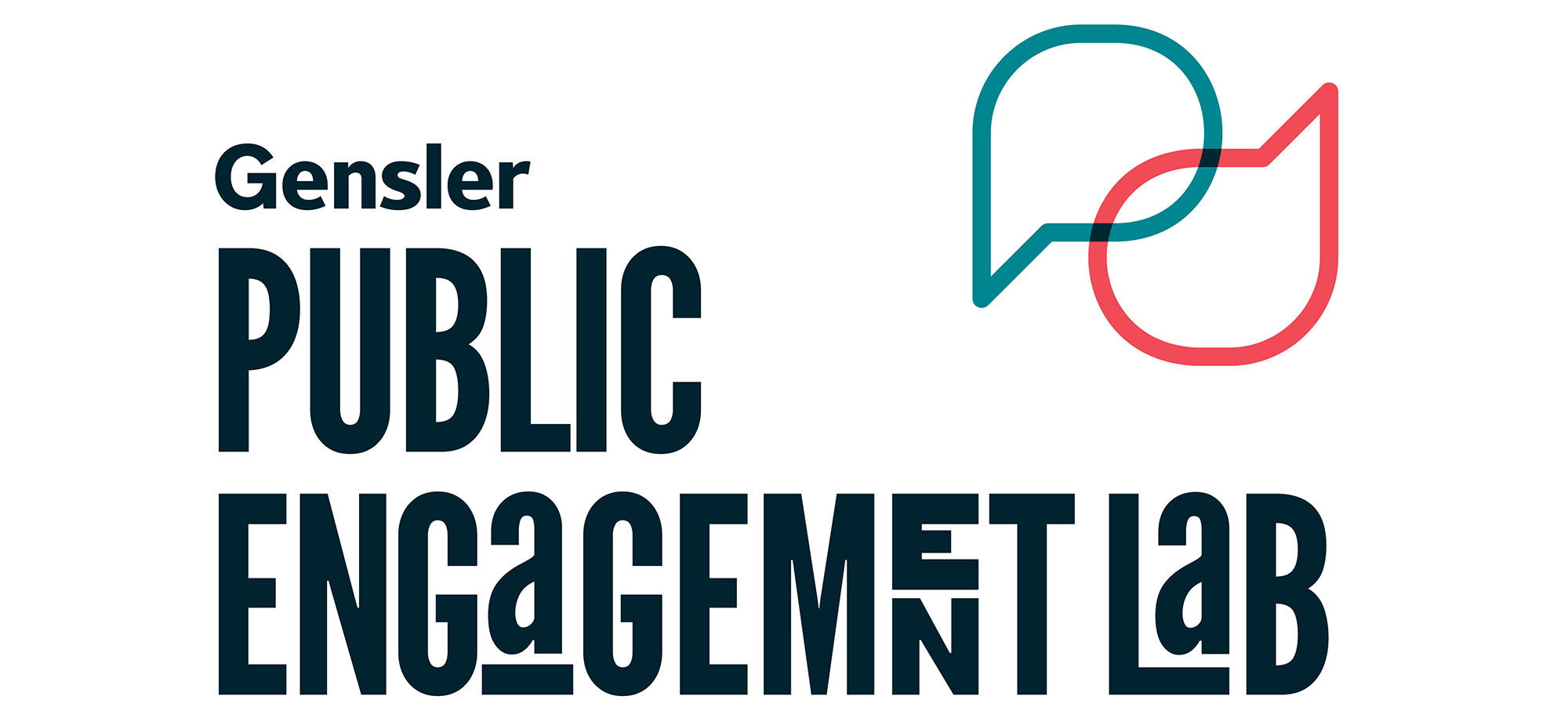
Our role is centered on fostering a relational process that connects communities to resources, people, experiences, and ideas. We know that when a project’s vision is owned by the community, it’s much more likely to be successful, supported, and implemented.
Intentional and compensated partnership with community representatives, local organizations, minority businesses, and individual practitioners already embedded in the community is foundational to our engagement philosophy. This leads to more impactful, authentic, and meaningful solutions, while building capacity for the local network and community. Partnership at this level amplifies impact, extending far beyond the project’s scope to create opportunity and value in collaboration with community.
We know that change moves at the speed of trust, and our projects and engagements are informed by this basic premise. Trust takes time, follow-through, and consistency. The engagement process is about building relationships and providing the structure, tools, and resources to build on current strengths, while organizing community expertise through the development process. We are guided by principles of transparency, honesty, inclusivity, and accessibility. As designers, we want the public engagement experience to not only be effective, but memorable and joyful for all its participants.
Here are a few recent projects and practices we find inspiring:
San Francisco Public Library Strategic Plan, San Francisco
Public libraries are a critical component of our social infrastructure and serve as multigenerational community hubs promoting resilience and diversity. This is even more true post-pandemic, as our communities search to reconnect with their neighbors and regain a sense of civic belonging. Gensler partnered with Margaret Sullivan Studios (MSS) to co-author a bold vision and strategic roadmap for the future of San Francisco’s library system. The team has conducted a variety of engagements with library staff and local communities through listening sessions, focus groups, surveys, and interactive workshops.
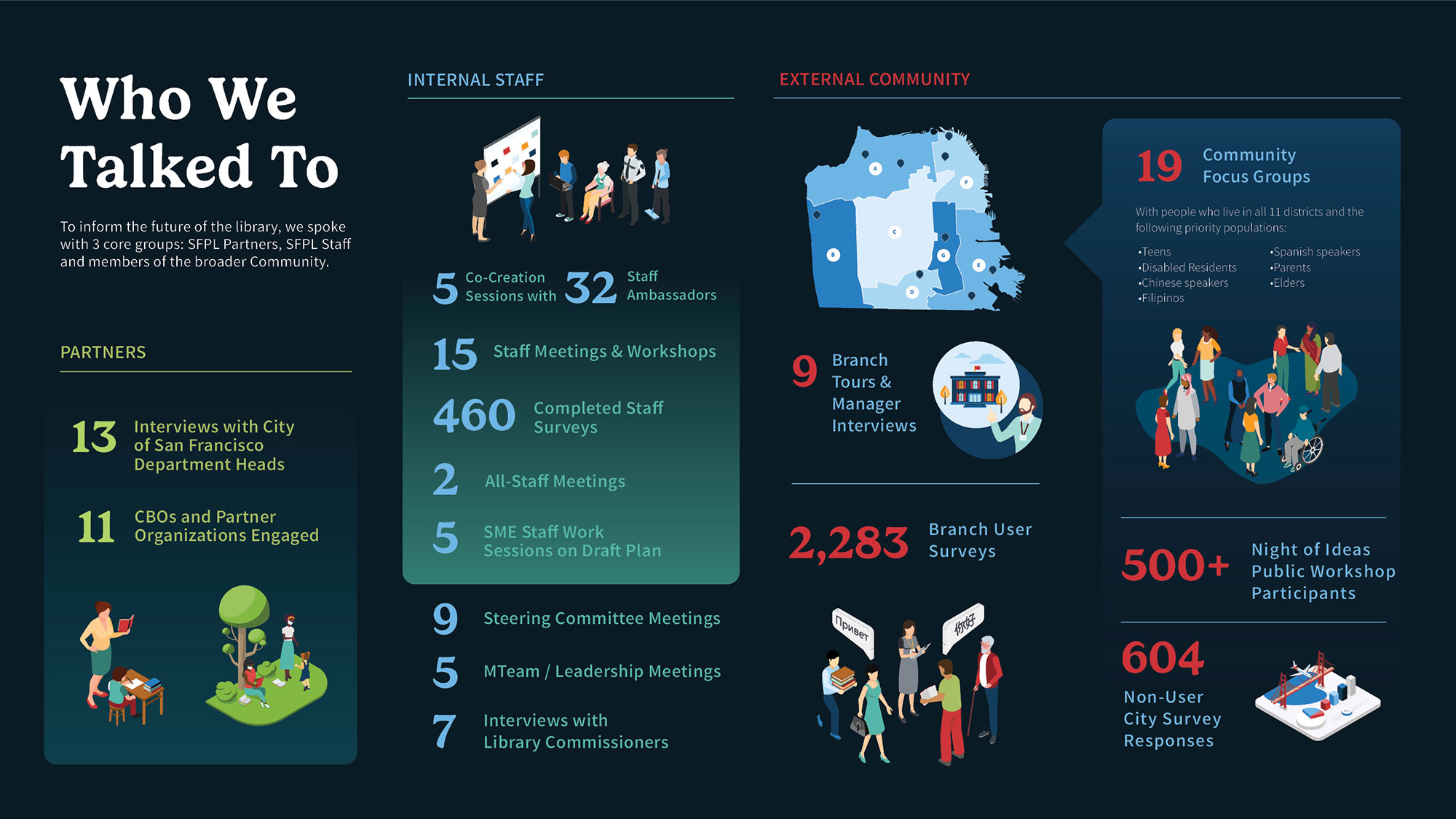
Penn Station, Baltimore
Baltimore Penn Station is more than just a gateway to the city. As a regional hub and a destination itself, it’s a mainstay for the local community. Redevelopment of such an iconic and locally impactful site required a deep dive into public discourse to accurately define civic priorities and needs. With this in mind, Amtrak, Penn Station Partners, and Gensler worked collaboratively to lead a community engagement campaign to explore a strategy around the station’s expanding operations.
The team held three large public meetings with attendees representing a remarkably diverse range of intimately local and broadly regional interests that span the socioeconomic spectrum. Since communication styles are as diverse as perspectives, the meeting types were varied to incorporate as many voices as possible via a town hall, open house, and series of roundtable discussions. For the launch workshop, over 200 attendees congregated at a local university and participated in small group discussions with over 25 facilitators. The design and development team engaged with residents and interested parties through rotating table topics and passive activities to collect input. This example reminds us of what can happen when design is not disassociated from the communities it affects. It advocates for a more comprehensive process that offers a strong foundation for shared priorities and a shared vision.
The Englewood Nature Trail, Chicago
The Englewood Nature Trail renovation presented a unique opportunity to create a neighborhood-anchoring amenity for members of the Englewood community in support of economic growth and community revitalization. Gensler worked with the City of Chicago, Department of Planning and Development, as well as the Department of Transportation to repurpose 1.75 miles of an abandoned railroad into a natural recreation trail in the Englewood neighborhood on the City’s South Side. Gensler teamed with a local community partner, Grow Greater Englewood (GGE), to provide an authentic and community-led design process, resulting in a series of hands-on inclusive workshops to co-create a vision and project direction with local residents. GGE partnership was critical to our success and continues to carry the vision forward post-project engagement.
Collective Learning Through Internal Community Building
To collate and connect our Gensler staff who are passionate about public engagement work, we initiated a “Circle of Practice” — a restorative activity that can be used proactively to develop relationships and build community around this work. Circles provide an opportunity to speak and listen to one another in an atmosphere of safety, respect, and equality. Within Gensler, this monthly open dialogue across the firm includes engagement “101” curriculum, guest speakers, project presentations, resource sharing, workshopping current project challenges, and research collaboration.
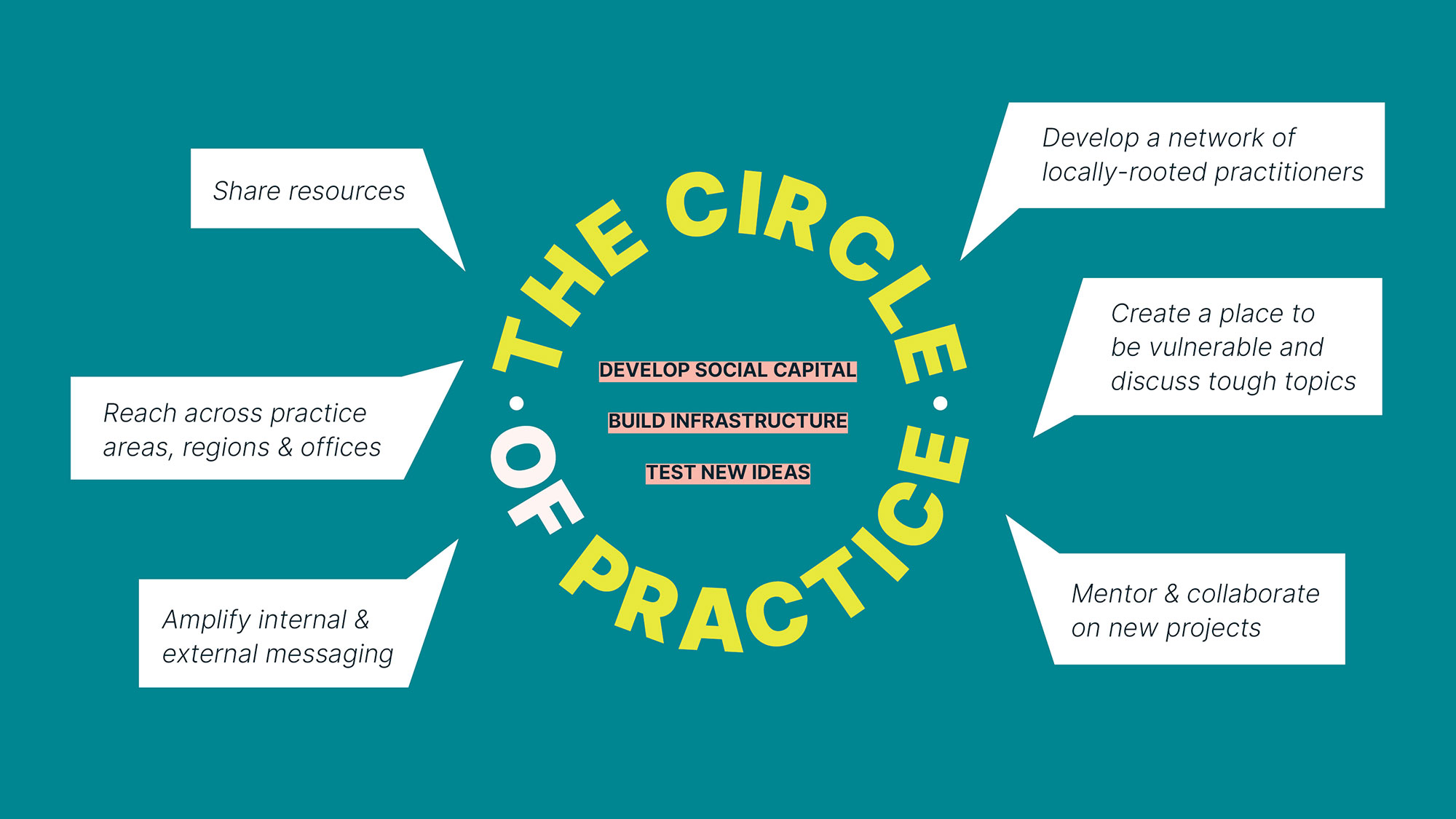
Gensler strives to continue growing our existing local community relationships and cultivating new partnerships. If your city, community, or organization is looking for a partner to engage in meaningful conversation and create equitable project outcomes, please reach out!
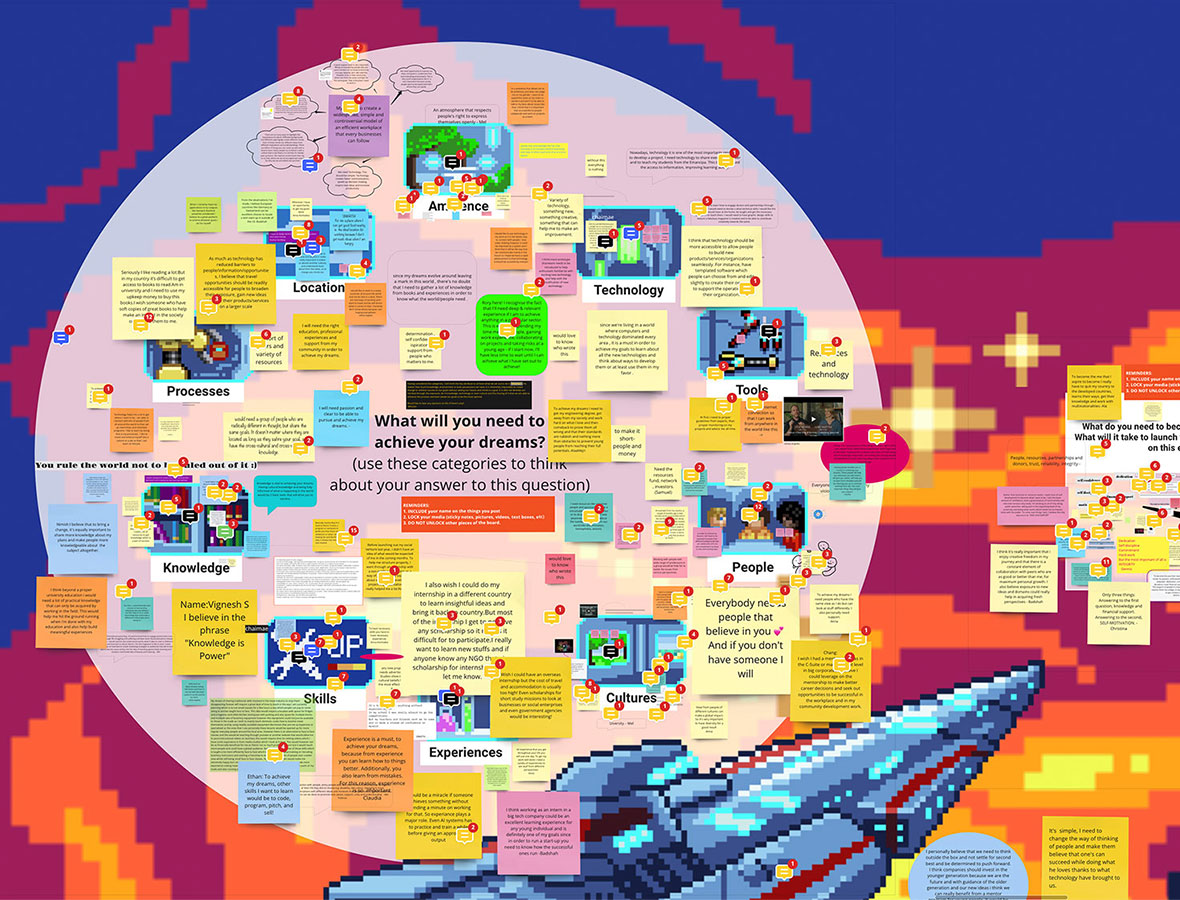
For media inquiries, email .
